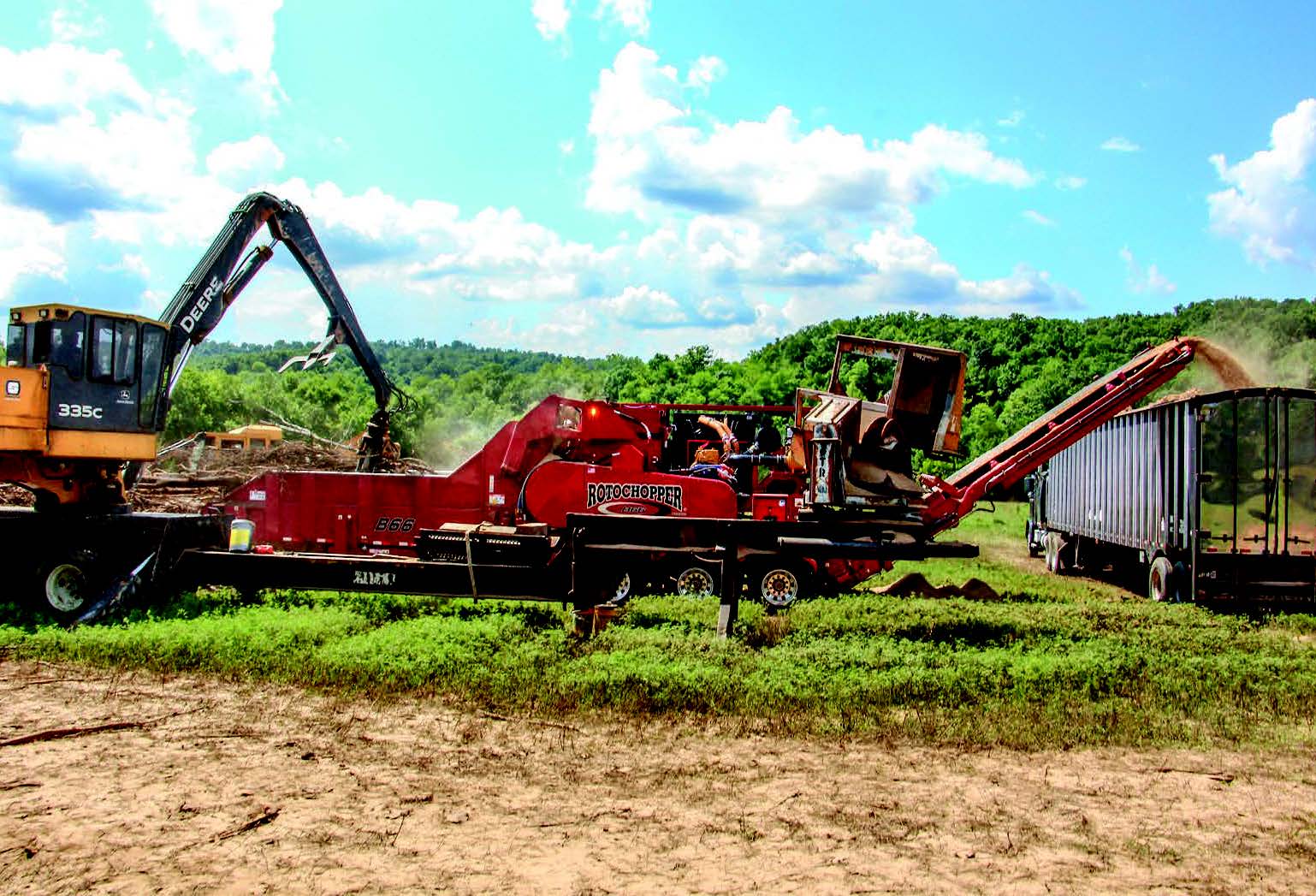
Rotochopper customer, Gary Easterling, has seen his share of ups and downs in the industry in the 42 years since Easterling Wood Products, Inc. has been established. The company has been both much larger and smaller at different times than its current size. Today, you aren’t apt to hear too much complaining from owner Gary Easterling, 71. “It’s a rat race in the timber business, but right now things are pretty good and prices are healthy,” he reports.
Mulchin’
Among the diversified operations under Easterling Wood Products these days is a mulching crew. “With the mulch business in this area, the problem is getting the material,” the logger relates. “We don’t have any big mills, so the only way to get it is to make it yourself. Of course this mainly comes out of treetops or slabs. When you buy and grind slabs, you have a lot of money tied up in it, and there is hardly any money to be made in the mulch business to begin with. So the main place we get it is by grinding treetops, and that fits in with our logging operation.”
This three-man job, which centers around a Rotochopper B66 grinder fed by a Deere 335 loader, follows after Easterling’s logging crew and other area loggers, grinding tops and other residuals. Easterling also has a yard in the town of Rogers (which was the location of the first Wal-Mart store, now head- quartered in neighboring Bentonville). Easterling stores his grindings there, an inventory that is supplemented by material brought into the yard, mostly from commercial trimming companies.
The vast majority, nearly all, of the mulch will be colored and sold for landscaping locally. The Kenworth trucks dedicated to this crew can haul six or more loads a day, depending on distance, from the woods to Easterling’s plant in Rogers.
There is another market for mulch, too: Easterling sells it to natural gas drilling companies to be used for LCM (loss circulation material). “Whenever you drill a well, especially natural gas, you pump drilling fluid down in it and it comes back up to the top, and makes a complete circle,” Easterling explains. “Whenever they go down in a rock formation and hit a gap, they have to stop that up. If they hit a void, they take some of that LCM, mix it with their drilling fluid to more or less make a paste, and pump that in there to pack that hole.” Easterling got into this market about 10 years ago, when fuel hit $4 a gallon. “I have a good connection with a firm out of Oklahoma City. It’s a good deal that goes hand in hand with what I have.”
Expounding on the slim margins in mulch, Easterling adds, “If you haul this stuff very far then you have defeated your purpose, because you’re getting too expensive. You need to be within 15 miles of your source or all your money gets tied up in transportation. So you can’t afford to haul it very far.” Tight margins require close supervision, he notes. “You have to really watch what you’re doing to come out with a profit.”
With that in mind, he points to Rotochopper’s slogan: “Perfect in one pass.” Getting it right the first time, Easterling believes, is also critical to success. “A lot of people will grind it then come back and grind it again. Well, every time you grind it, you have expense in it.” The Easterling crew grinds to 1.5 in. diameter from up to a 36 in. diameter at the infeed. With the grinder, loader and truck, he figures he has about $1 million invested in this crew.
“This mulch business has turned into something,” Easterling states. “Most people have no idea how big it is, especially in our area here, because our growth in northwest Arkansas has just gone wild.” In fact, the region in which he lives and works is said to be one of the fastest growing metro areas in the whole U.S.
Read full article from Southern Loggin’ Times November 2018 issue.
